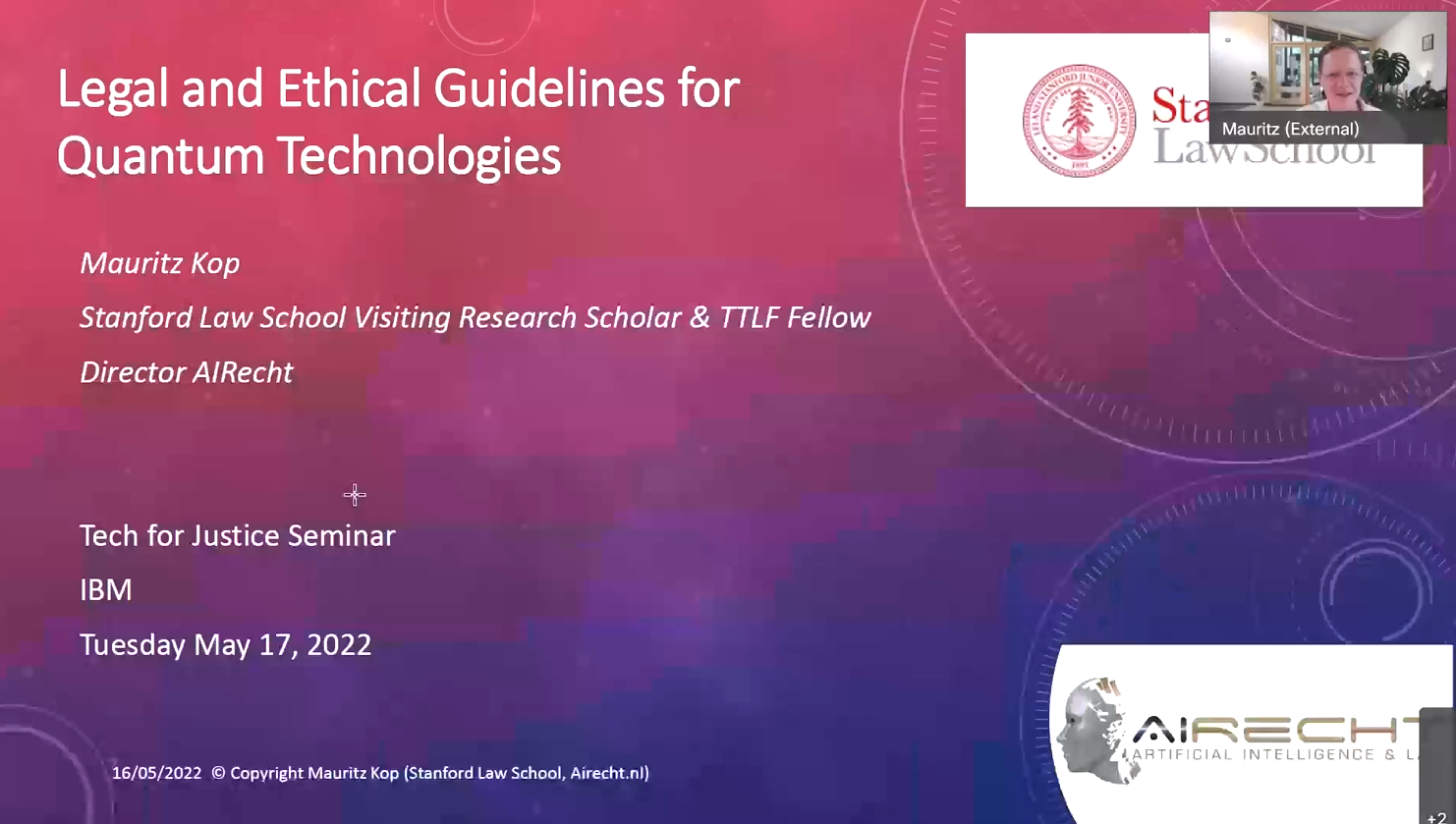Washington, D.C. – On October 11, 2023, the Center for a New American Security (CNAS) convened a timely, off-the-record roundtable discussion to address one of the most pressing national security challenges of our time: safeguarding American leadership in quantum technology. The event, titled "Quantum Roundtable: Research Security, Technology Theft, and Intellectual Property Rights," brought together a select group of leading experts from government, industry, and academia. Among the distinguished speakers was Mauritz Kop, Fellow and Visiting Scholar in Quantum and Law at Stanford University and later the Founding Director of the Stanford Center for Responsible Quantum Technology (RQT), and Chair of the annual Stanford RQT Conference.
The roundtable served as a critical forum for in-depth dialogue on formulating a robust U.S. strategy to protect its quantum ecosystem from intellectual property theft and illicit technology transfer, particularly in the context of strategic competition with nations like China. Quantum technology governance global expert Mauritz Kop was invited to provide his unique perspective, rooted in a holistic framework for responsible innovation, to help navigate the complex interface of intellectual property and national security.
The Center for a New American Security: Shaping the National Security Debate
The Center for a New American Security is a prominent, bipartisan non-profit organization that develops strong, pragmatic, and principled national security and defense policies. CNAS engages policymakers, experts, and the public with innovative, fact-based research, ideas, and analysis to shape and elevate the national security debate. Its Technology and National Security Program, led by Senior Fellow and Director Vivek Chilukuri, focuses on the complex challenges and opportunities presented by emerging technologies, aiming to ensure the United States maintains its technological leadership while upholding democratic values. This roundtable was a key component of the program's project on U.S. quantum strategy and its intersection with U.S.-China economic relations, reflecting CNAS’s commitment to proactive and forward-thinking policy development.
A High-Stakes Convening of Quantum Leaders
The roundtable's agenda was designed to facilitate a candid and substantive discussion among key stakeholders. The session was opened by CNAS Executive Vice President and Director of Studies, Dr. Paul Scharre, and Program Director Vivek Chilukuri, who set the stage by outlining the critical importance of the topic.
The main discussion featured two expert speakers:
Mauritz Kop, who brought a comprehensive legal, ethical, and policy perspective from his work at Stanford. His research focuses on developing governance frameworks for emerging technologies, integrating intellectual property, antitrust law, distributive justice, and national security strategy.
Dr. Elliott Mason, a Registered Patent Agent at Young Basile and a leader within the Quantum Economic Development Consortium (QED-C). Dr. Mason provided deep technical and practical insights from the front lines of quantum patenting and the development of industry standards.
Conclusion: A Principled Approach to Quantum Technology Governance
Mauritz Kop concluded his remarks by emphasizing the profound dilemmas and trade-offs inherent in governing quantum technology. The pendulum swings between open and closed innovation, and between mitigating risks and maximizing benefits, require a sophisticated, evidence-based, and adaptive approach.
His participation in the CNAS roundtable provided a crucial, principled voice, advocating for a strategy that is not merely defensive but forward-looking. By grounding the discussion in the RQT framework, he made a compelling case that true security lies in advancing a thriving, competitive, and responsible quantum ecosystem—one that leads the world in innovation while being firmly anchored in democratic values and a commitment to the planetary good. The event highlighted the essential role of deep, interdisciplinary dialogue in shaping a quantum future that is both secure and beneficial for all humankind.
Meer lezen




